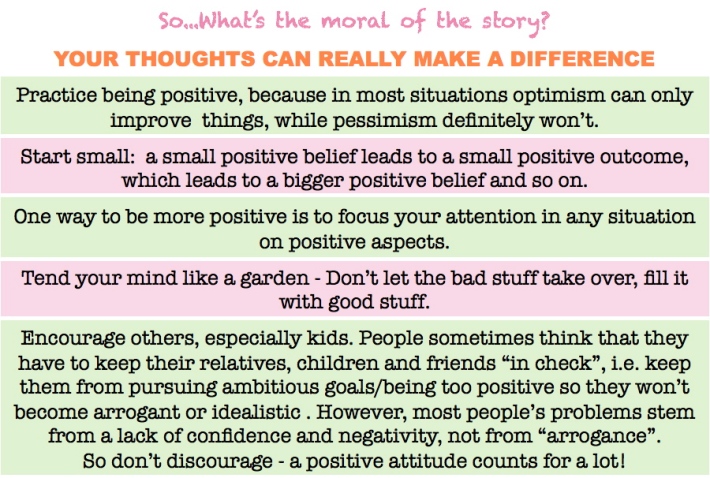.
By Wally P. Archivist,
Historian,
and Author Back to Basics
.
During the past five years, I have been
asked on numerous occasions
to answer
specific questions about James Houck.
The three questions
that come up the most are:
Is James Houck a member of A.A.?
Is James Houck a recovering alcoholic?
Is James Houck a member of the Oxford Group?
Sometimes there are no easy answers even when the questions seem to
be simple and
straightforward. This is certainly the case when trying
to explain the relationship of
James Houck, the Back to Basics Beginners'
Meetings, and Alcoholics Anonymous.
Although there are now more than 2,000 Back to Basics Beginners' Groups
throughout
the world which have produced more than 100,000 recoveries,
there are still people
within the A.A. community who are unfamiliar with this "original" meeting format
or the role James Houck has played in
bringing this highly successful "design for living"
back to the fellowship.
James is the last living link to the spiritual roots of the Alcoholics
Anonymous program that produced a 75% recovery rate from alcoholism.
Many people
today know very little about the early days, except for what
they have read or what they
have heard from some "old-timers" (actually
newcomers compared to James Houck)
who sobered up in the 1970's. They don't
realize that the program of the 1970's was quite
different from the
"original" program of the 1940's. The program has continued to change
over the years and has reached a point where today A.A. has only a 5-10%
recovery rate,
depending upon which study you read.
Figures published by GSO show that the fellowship
peaked in 1992 at
2.2 million members and has declined 20% since then. Prior to the 1990's,
the fellowship doubled in membership every ten years. The objective of
Back to Basics is
to reverse this decline by reintroducing the "original"
Beginners' Meetings that worked for
three out of every four people who
entered the rooms of Alcoholics Anonymous.
James Houck is truly a unique individual. He is ninety-five years old,
sixty-six years sober,
and one of the greatest "life-changers" of the
past one hundred years.
Just like Bill W.,
Dr. Bob S., and the other "Big Book" authors, James
Houck found God and sobriety in
the Oxford Group. And, just like Bill W.,
Dr. Bob S., and the other "Big Book" authors,
James had his spiritual
awakening as the direct result of taking the Oxford Group Four
Steps
of Surrender, Sharing, Restitution and Guidance.
James attended Oxford Group
meetings with Bill W. in Frederick, MD from
1935-1937. The Oxford Group considered
all addictions to be equally
detrimental in terms of cutting a person off from God.
There was no more
emphasis on alcohol than there was on smoking, womanizing, or drug
addiction.
All of these behaviors left us in the dark relying on self-will, rather than
God's
will to solve our problems. The Group believed that self could not
overcome self. Only
God could remove our addictions and afflictions, provided
we established an intimate
two-way relationship with Him. In 1937, Bill left
the Group to work full time with alcoholics.
As James explains it, when Bill W. left the Oxford he didn't take all the
drunks with him.
James remained in the Oxford Group, as did Rowland H.,
Cebra G., Victor K., and Charles C.
among others. In fact, Dr. Bob didn't
leave the Group until 1940; almost a year after the
"Big Book" was written.
James is the only person alive today who has first hand knowledge
of the
material Bill W. and the other "Big Book" authors used to write the book
Alcoholics Anonymous. On numerous occasions, he has stated that the
"Big Book" is Oxford Group
literature written for a specific segment of
the Oxford Group fellowship.
Although James
stayed in the Oxford Group, he did have contact with the
early A.A. fellowship through
Sam Shoemaker, a mutual friend of his and
Bill W.'s. Sam Shoemaker was the rector of
the Calvary Church in New York
City, which was the United States headquarters of the
Oxford Group. Bill W.
attended Oxford Group meetings at the Calvary Church and Sam
was instrumental
in assisting Bill W. with the writing of the "Big Book" Bill acknowledged
this linkage when he wrote on page 39 of A.A. Comes of Age:
"The early A.A. got its ideas
of self-examination, acknowledgment of
character defects, restitution for harm done, and
working with others
straight from the Oxford Groups and directly from Sam Shoemaker,
their
former leader in America, and from nowhere else."
Since the Oxford Group had been responsible for his spiritual awakening,
James remained with the fellowship even after it
changed its name to Moral
Re-Armament in 1938. He didn't attend A.A. meetings until the
1980's when
he was working with a grandson who had a drinking problem. At these meetings,
he saw people practicing a program that did not even remotely resemble the
"original" program
of the 1940's. That's when he started to speak at A.A.
events about the early days of the
fellowship.
James Houck does not consider himself to be a recovering alcoholic. The term "recovering" is belittling, it refers to someone still struggling
with the problem rather than
living in the solution. It is an expression
that evolved from the treatment centers in the 1970's.
This is how James
describes his recovery:
"To me 'recovering' means you haven't made the
grade yet. You're still
not sure of your position.
"I am absolutely sure of my position.
God took alcohol out of my life on
December 12, 1934, and when God took alcohol out of my
life, He took it
out forever."
James is a recovered alcoholic, which is the term used by Bill W.,
Dr. Bob S.
and the A.A. pioneers. The word can be found seventeen times in the first
164 pages
of the "Big Book." In addition, James sometimes refers to himself
as an ex-alcoholic.
This expression was used in the first ten printings of
the first edition of the "Big Book."
In 1947, "ex-alcoholic" was changed
to "ex-problem drinker."
James does not identify
himself as an alcoholic from the podium. Here again
he follows the precedent set by Bill W.,
Dr. Bob S. and the A.A. pioneers.
Neither Bill nor Dr. Bob ever identified themselves as
alcoholics when
speaking at A.A. meetings. To verify this all you have to do is listen
to
the audio tape recordings of their speeches. The ritual of identifying
oneself as an alcoholic,
followed by a chant from the audience of
"Hi _______," also came from the treatment centers
decades after the
fellowship came into being. It is not a part of the "original" A.A.
program.
James does not claim to be the oldest living member of A.A. because he
does not want, in any
way, to overshadow those who have maintained continuous sobriety after the fellowship was
formed in the spring of 1939. Therefore,
Duke P. of Jacksonville Florida is the oldest member
of A.A. with a sobriety
date of 8/15/40, even though Duke's sobriety date is almost six years
after
James=.
This is also the reason James uses his last name when speaking at A.A.
events.
He downplays his membership in A.A. to avoid being considered
the oldest living member of
the fellowship.
Keep in mind that James Houck, Bill W. and Dr. Bob S. all found permanent
sobriety in the Oxford Group. If we say that James Houck's sobriety date
isn't important because
he sobered up in the Oxford Group, then we must
say the same thing about Bill and Dr. Bob.
This has been a lengthy explanation of several very simple questions.
In summary:
Is James Houck a member of A.A.?
Yes, he is as much a member of A.A. as
anyone else who has a desire to
stop drinking. However, for James the compulsion to drink
was successfully
removed on December 12, 1934. He has not had a drink of alcohol or
taken
a mood altering substance (including nicotine) since that day.
James has an A.A.
home group. It meets on Thursday nights at the Towson,
MD Methodist church.
Is James Houck a recovering alcoholic?
No. James Houck, Bill W. and Dr. Bob S. all had
drinking problems,
which they overcame in the Oxford Group as the direct result of taking
the Four Steps of Surrender, Sharing, Restitution, and Guidance. Since
December 12, 1934,
James has been a recovered alcoholic or ex-alcoholic.
Is James Houck a member of the Oxford Group?
James Houck was a member of the Oxford
Group in the 1930's and is a member
of Moral Re-Armament today. He is also a member of
the Hunt Valley Rotary
Club and the Towson, MD Methodist Church.
Although the Oxford
Group, as such, does not physically exist anymore,
the principles of the Group are just as
valuable as a "design for living"
today as they were in the 1930's. Both James Houck and I
apply the Four
Standards of Honesty, Purity, Unselfishness and Love to our thoughts,
words
and deeds; use Restitution to become life-changers; and rely upon
the Guidance of God to
direct every area of our lives.
In this sense, the
Oxford Group is alive within each and every person who practices the
"original" A.A. program in order to witness once again the miraculous
results obtained
by our A.A. pioneers.
.
ME and the Boss
.
.
.
..

























